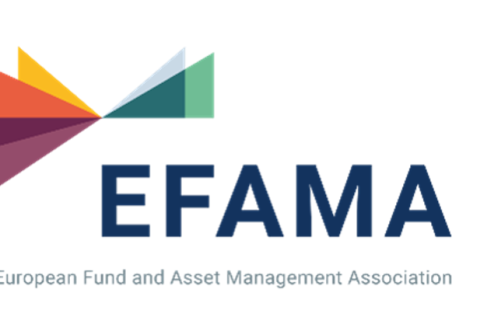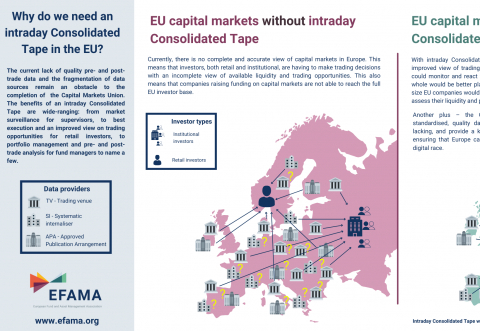The European Commission’s proposal on MiFIR establishes the blueprint for a consolidated tape (CT) for Europe’s capital markets. It also significantly alters the competitive market structure brought about by MiFID II by introducing greater transparency requirements. Finally, it addresses important issues around market data costs.
Capital markets
Investment managers, acting on behalf of their retail and institutional clients, are among the largest investors in financial markets. They represent a key component of the market’s “buy-side” segment.
In representing the interests of its members on wholesale capital market issues, EFAMA advocates for fair, deep, liquid, and transparent capital markets, supported by properly regulated and supervised market infrastructure.
EFAMA position MiFIR review - a buy-side view on consolidated and market structure reforms
IOSCO Consultation on 'Review of margining practices'
We commend the work that IOSCO has undertaken to date on this topic including the survey work and the summary findings in the form of the report currently under review. It is fair to say that the conclusions of the report and areas for further work gave rise to detailed discussions within our industry, yielding ultimately firm views on the priority areas that we support and see value in, and areas we felt were not reflected in the study and thereby building risk into margining models in future crisis scenarios. These areas are fur
ESMA consultation on the review of clearing thresholds under EMIR
For asset managers the main issue continues to be the reclassification of ETDs as OTCs as a result of the non-equivalence of UK regulated markets. While we understand that a review is legally mandated at this point in time, we do not see value in recalibrating the various thresholds or making changes to the calculation methodologies unless these are in the two areas we define below. Our main concern revolves around the fact that changes would carry significant compliance costs while making little impact on the population of counterparties and notional captured by the thresholds.
EFAMA, ICSA & MFA welcome IOSCO Feedback Statement on “Market Data in the Secondary Equity Market”
3 June 2022 - EFAMA, ICSA and MFA (the Associations) have read IOSCO’s Feedback Statement on “Market Data in the Secondary Equity Market” following the IOSCO consultation in 2021, and warmly welcome its conclusions.
The Associations would like to draw attention towards the executive summary in particular, where a number of valuable insights and recommendations are presented. For example, we fully support the statement below, though we would suggest an important addition:
Cross-Industry Consensus on EU Equity Consolidated Tape
EFAMA, AFME, BVI and Cboe Europe Agree Cross-Industry Consensus on EU Equity Consolidated Tape
Monday 30 May, 2022 - AFME, BVI, Cboe Europe and EFAMA have today jointly published a position paper which provides a set of key principles needed to ensure the successful creation of an EU Equity Consolidated Tape (CT).
EU Equity Consolidated Tape Proposal - Statement of Principles
A Cross-Industry Consensus on the EU Equity Consolidated Tape Proposal - Statement of Principles
EFAMA, AFME, BVI and Cboe agreed on a set of 11 Principles.
The provision of an appropriately constructed EU Equities Consolidated Tape (“CT”) will democratise access to equities (as proposed by the EU Commission) for all investors, regardless of resources or sophistication, with a comprehensive and standardised view of EU equities prices.
Visual | Why do we need a real-time Consolidated Tape in the EU?
The current lack of quality pre- and post-trade data and the fragmentation of data sources remain an obstacle to the completion of the Capital Markets Union. The benefits of a real-time Consolidated Tape are wide-ranging: from market surveillance for supervisors, to best execution and an improved view on trading opportunities for retail investors, to portfolio management and pre- and post-trade analysis for fund managers to name a few.
3 Questions to Jean-Louis Schirmann on the use of EURIBOR
Q #1 How was Euribor impacted by the adoption of the Benchmark Regulation (BMR) and what are the relevant features of the reformed Euribor for investment managers?
3 Questions to Christophe Binet on LIBOR Transition
Q #1 When will LIBOR phase out and which rates will be replacing it?
The London Interbank Offered Rate, also known as LIBOR®, is a widely-used index for short-term interest rates that is commonly found in




































